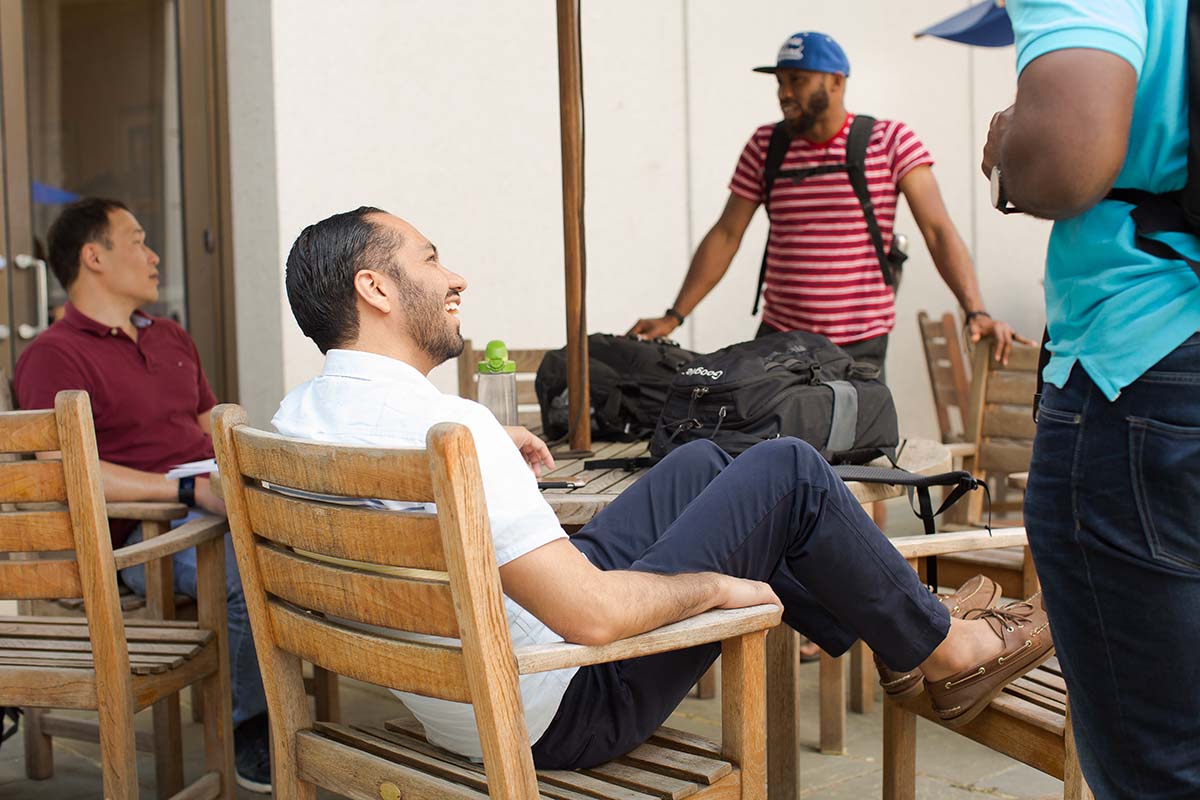General Martin Dempsey, Fuqua Professor and 18th Chairman of the Joint Chiefs of Staff
“What makes this crisis unique in our lifetimes, but maybe in anyone’s lifetime, is that it is really the first crisis that we have faced in the social media era. It can be actually helpful, evidenced by the conversation you and I are having about it. But it can also speed things up, make it more complex. You have information competing with it kind of randomly and sometimes purposefully. And it puts leaders under far more scrutiny than they ever have before. What really holds everyone together in a crisis is a sense of belonging and a sense of trust and confidence. And if that trust and confidence is undermined by these social media interactions, then we have a much more challenging path forward.”
“There just are some problems in life, whether it is climate, disease, migration, refugees, that can’t be solved by any one country, anyone’s border. They are just problems that scream out for a collaborative solution. And we got to come to grips with that.”
“You have to come to the conclusion that you are trying to help people through a period of uncertainty, but what you are really trying to do is help them overcome their fear. What is really at the heart of all this is fear. Fear of catching the disease. Fear of your loved one catching it. It’s fear of losing your job. It’s fear of never interacting with your family the same way you did before. It’s a time when leaders have to do two things. One is they have to reinforce. You can’t get through fear without a sense of belonging. I kind of tongue-in-cheek tell people, ‘That’s why dying is so scary, because you can’t take anybody with you.’ It’s not like you can say, ‘Hey, look, I think I am going to pass away here next Wednesday. What do you think? Because I don’t want to do this by myself.’ But think about it. The only anecdote to fear is belonging. Leaders have to develop a sense of belonging. The second thing they have to do is own the situation. Be ‘sense makers.’ I teach that in my class at Fuqua, to be, ‘sense makers.’ And if you can develop a sense of belonging and help make sense of things and help people make good decisions, they are going to have trust in you and then you can get through things like this.”
“There is always a psychological effect to any crisis. You know the expression, ‘Never waste a crisis.’ People come and see me and they say, ‘Boy, I can’t wait till we get back to normal.’ I say, ehh…normal was pretty good. Maybe we can do better than what we were doing before. Maybe this could be a wakeup call to some of those things. That’s part of it. I also think the way you get through crisis well, it’s because you’ve had a preexisting set of relationships that you can rely upon when the crisis occurs. I think one of the lessons we should take from this is we really got to work on relationships, domestically and internationally. So that the first instinct is not to blame but rather to collaborate.”
“We are in the post surge, pre-vaccine period, a lot of speculation about how long that could last. Could be quite some time. We can’t just keep our fingers crossed that this is all going to somehow go away. We got a stretch here before we get a vaccine. And then, even after a vaccine, if you look at the pattern of these pandemics, they used to occur every hundred years. Then it went to every 25 years. Now it is every five or six. We just got to try and learn from this and try and be better at it.”
“Almost anybody has enough talent to look out and point out the differences among us. Political differences or racial difference or gender differences. The people that we admire most in our lives, are the people that actually look for the things that unite us. That can actually make really different groups of people pull together and get something done.”
“I entered West Point in ’70. Graduated in ’74. The Vietnam War ended in ’73. There were two emotions there. One is, ‘Boy, I’m glad the war is over.’ But the other emotion is, ‘I’ve been trained to be a warrior on behalf of my country and now I’ve missed it.’ And then, we were tasked with rebuilding the military after Vietnam. Of all the things my generation probably did the best, it wasn’t Desert Storm or Iraq or Afghanistan, Somalia Panama, Grenada. It was changing the Army from being a conscript force and turning it into an all-volunteer force that is the best on the planet.”
“The economy has been roughed up pretty bad. And I don’t think anyone knows really how bad yet. And so, what an opportunity for someone who wants to be at the beginning of helping us recover from a real economic jolt. And it seems to me that our lifestyle, our prosperity, is going to be dependent on young men and women who say, we thought we were going to be entering one kind of economy. Now we are going to be entering a very different kind of economy. We are going to put our rucksacks and our backpacks on and take that burden on. And get this country back to what we know it can be. And maybe by the way, even better, as I said before. And maybe back to normal is not where we want to go. But it is going to be these young men and women who are going to help us figure it out.”

